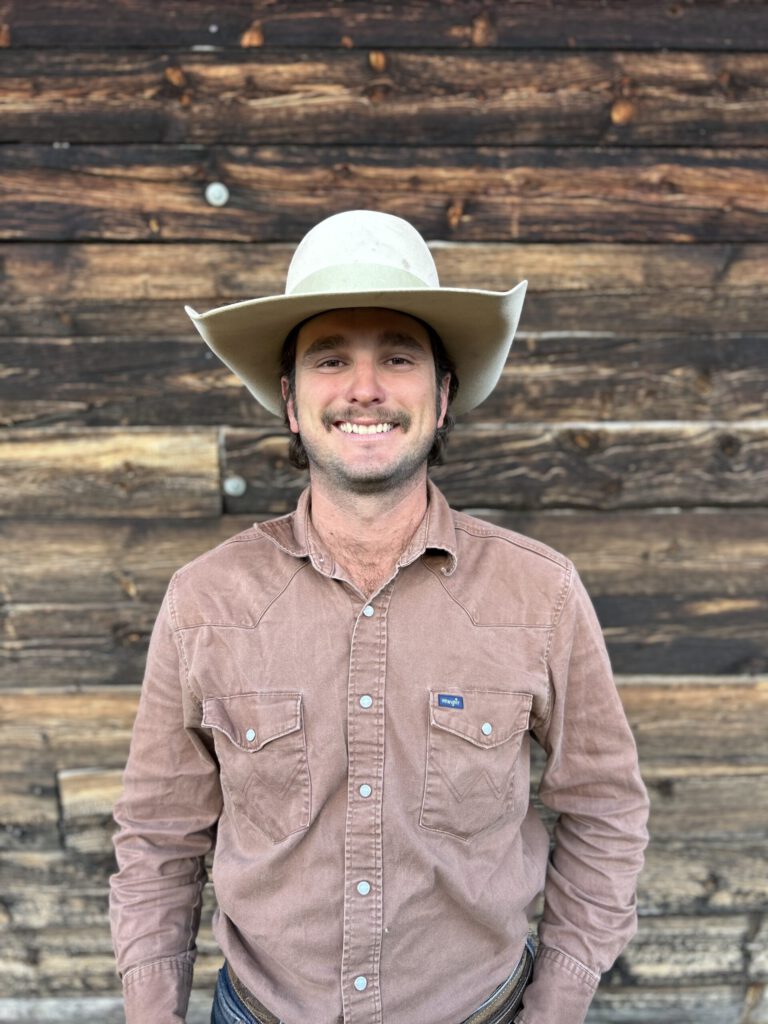
About
the Ranch
Elk River Livestock believes that agriculture and environmental management tools can work in unison to improve both the land and the cattle health. The ranch focuses on working with nature as the ultimate blueprint for decision making. This approach to land stewardship will not only maintain soil health, but in turn improve it substantially to allow regenerative growth. This will often require the use of electric fencing to create smaller pastures, and grazing hay meadows will create ideal landscapes to promote this.
The operation consists of custom grazing yearlings steers throughout the summer. Elk River Livestock is generally considered a grazing operation that focuses on land and cattle health. The purpose of grazing yearlings is to naturally promote soil health and add weight to the cattle. Learn more about Elk River here.
More Story
Regenerative Practices
Elk River Livestock believes that agriculture and environmental management tools can work in unison to improve both the land and the cattle health. With adaptive grazing and holistic management practices, we hope to increase the beauty and production of this special property. The ranch focuses on working with nature as the ultimate blueprint for decision making. This approach to land stewardship will not only maintain soil health, but in turn improve it substantially to allow regenerative growth. This will often require the use of electric fencing to create smaller pastures, and grazing hay meadows will create ideal landscapes to promote this.
This style of grazing management will focus primarily on working with Mother Nature, as Mother Nature would naturally. With cowboy traditions at the root, and using high-density grazing for short periods of time, we will promote growth, and grow more grass than ever before. This will allow for endless opportunities and give the land the rest and grazing that it needs.
Tour
the Ranch






The Mentor
Davey Baron
Davey Baron got his start when working in the Elk River Valley in 2015. Since then, Davey has honed in on his key interests: horses, cattle and the land that sustains us. Clark, Colorado is an easy place to fall in love with, and that is just what happened. When roots were established in this valley, it was game over, and the desire to create an even more abundant environment was on.

The Duties Of
The Apprentice
What will an apprentice do?
What skills and traits are required?
- Willingness to learn
- Physical fitness as the job requires a lot of fencing, hiking, and general manual labor
- Horseback experience
- Ability to work long days occasionally
- Ability to work alone
- Taking direction and staying on task
- Curiosity and desire to learn
What skills will an apprentice acquire?

Nuts & Bolts
More Details
Living on the Ranch
Town Information
The ranch is located 17 miles North of Steamboat Springs, Colorado. The town of Clark offers a small general store with a deli, post office and internet access. Clark also has a few other restaurants/bars that are a great place to meet locals. The town has a small town charm that is hard to beat with incredible mountain views, abundant wildlife, and the Elk River that flows through the town. Clark consists of mostly agricultural operations as well as a destination for hiking, hunting, biking, fishing, and lakes to enjoy.
Housing
The apprentice will have their own one room cabin with kitchen and bathroom at headquarters. See photos included.
Laundry
Available at the general store approximately 1.5 miles down the road.
Internet Service
Internet is available at the headquarters for apprentice’s use or at The Clark Store.
Cell Service
Service is available most everywhere on the ranch. Verizon is the best provider for most of the ranch.
Visitors
Apprentice will be allowed to have visitors. However, try to plan it with your mentor just in case there are important ranch jobs going on that are not conducive to hosting time.
Food
Apprentice will be responsible for their own meals and should know how to reasonably cook. Some beef will be provided to you.
Pets
Dogs will be considered. The dog(s) will have to be able to get along with other dogs on the ranch and be well behaved. Any unnecessary chasing of cattle or wildlife will not be tolerated. Working dogs are preferred if well trained.
Drugs / Tobacco / Alcohol
Tobacco is permitted on-site. Alcohol is permitted on-site only outside of working hours.
Firearms
This can be discussed.
Vehicle Info
Ranch Vehicles
Apprentice will use ranch vehicles for work. Some vehicles are manuals (can teach). A valid driver’s license and clean driving record is required to operate road legal vehicles. Primary transportation on the ranch is accomplished using UTVs.
Personal Vehicles
A personal vehicle is highly recommended for apprentice independence on their time off but is not required for the apprenticeship.
Work Hours / Time Off
Working Hours
Livestock production seasonally requires attention 7 days a week. There will be certain times when the ranch apprentice will be “on call” 24/7. Sundays will generally be recognized as a day off and flexibility will be given for additional time off during business week. Some Saturdays will be given off through the course of the apprenticeship. In general, work weeks will be between 40 and 60 hours.Time Off
Saturday and Sunday will generally be given as off days. As described above, occasionally there will be tasks that can’t be put off for the weekend, or all hands on deck are needed. However we can try to make up that time off another day if the week allows. If you ever were to want a 3 day weekend for a trip away, we can definitely do our best to accommodate.
Health Insurance
Explore
Apprentice Stories
Check out past apprentices and what they have to say about their experience.


